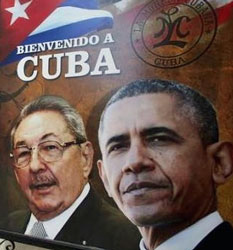 Agriculture could play a key role in normalizing trade relations with Cuba, according to President Obama on his historic visit to that nation this week.
Agriculture could play a key role in normalizing trade relations with Cuba, according to President Obama on his historic visit to that nation this week.
“If we build on what we’re doing in agriculture and we see more U.S. farmers interacting with Cuban farmers, and there’s more exports and imports, the possibility of ending the embargo increases,” Obama said to reporters in Cuba.
Traveling with the president, Agriculture Secretary Tom Vilsack this week announced several measures to foster further collaboration between the U.S. and Cuban agriculture sectors. Vilsack announced that USDA will allow the 22 industry-funded Research and Promotion Programs and 18 Marketing Order organizations to conduct authorized research and information exchange activities with Cuba.
These groups, which are responsible for creating bonds with consumers and businesses around the world in support of U.S. agriculture, will be able to engage in cooperative research and information exchanges with Cuba about agricultural productivity, food security and sustainable natural resource management. Secretary Vilsack called the announcement “a significant step forward in strengthening our bond and broadening agricultural trade between the United States and Cuba.”
American Farm Bureau Federation president Zippy Duvall says that decision will let U.S. farmers invest directly in the growth in trade between the two nations. “American-grown foods hold a clear competitive advantage in the Cuban marketplace, and the use of farmer- and rancher-generated funds to promote and market U.S. farm goods fits the checkoff mission perfectly,” Duvall said.
Checkoff funds are raised through a direct assessment on farmers, ranchers and agricultural businesses and are not taken from U.S. treasury funds. As such, Duvall said it is appropriate that the many farmers and ranchers who pay into the assessment and pay for the oversight of the program by USDA be allowed to see those funds invested in the development of the Cuban market.
